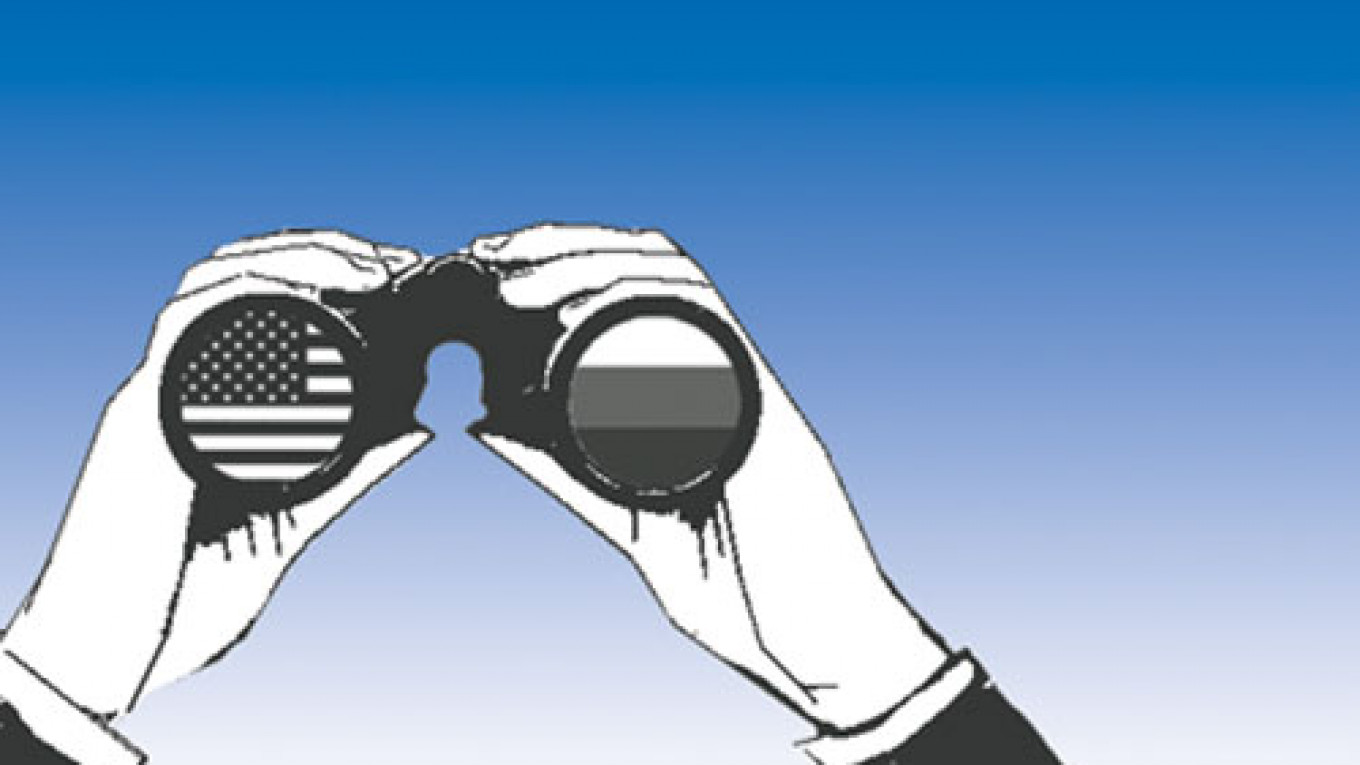Aside from the threat of Western sanctions, there may be other reasons why Russian troops have not been sent to Ukraine, reasons that reach back into the history of the Soviet Union.
There were three pervasive Soviet institutions: the military, the Communist Party and the secret police. They were highly interlinked, but each remained distinct. Relations between them were often tense and even hostile. However, although Communist elites and the secret police cadres continued to thrive despite the Soviet Union's fall, the military, excluding the special forces, has never really found a strong foothold, even during the days of the Soviet Union.
After winning the Civil War, the Red Army became a powerful institution headed by national heroes with a loyal following within the Army's ranks. However, Josef Stalin then took personal control over all aspects of the state, working to expand the Bolsheviks' political police into every factory, office and communal apartment in the country. Stalin eliminated his rivals, including the heroes of the Civil War using the KGB's predecessor, the NKVD and intimidated the Party elite. By the start of World War II, the Civil War's heroes had all been purged.
After World War II, Stalin again sought to make himself the only war hero and sharply toned down celebrations of Victory Day on May 9, the date Nazi Germany surrendered to the Soviet Union. The army never fully recovered from the blows it suffered and played a secondary role in the Soviet power structure. It suffered а further blow to its prestige in Afghanistan, and showed its total impotence when it lent its support to the coup against Gorbachev in August 1991.
Neither the Communist Party nor the secret police ever faced the same loss of influence. After Stalin's death, Party leaders put the secret police under firm Party control and curbed its powers. However, Yury Andropov, the long-time head of the KGB, revitalized it on the excuse of combatting the dissident movement in the 1970s and used it as a base to rise to national leadership. He was even able to promote his protege Gorbachev.
Many Communist Party members retained their influence even after the Soviet Union fell. Gorbachev's perestroika was a revolution from above led by the younger Party cadres he had brought to power. Most early oligarchs made rich by privatization came from the ranks of the Soviet Komsomol youth organization and similar groups. Overall, no Party apparatchik lost out in the post-Soviet era. All kept lucrative posts and improved their standards of living further. But the Communist Party underestimated the KGB. True, the secret police initially got a raw deal and many of its operatives had to do dirty work for the oligarchs during the 1990s. But it all changed when former KGB officer Vladimir Putin was elevated to the presidency as a compromise candidate by warring oligarchic factions. His rule has seen a total revanche of the KGB, now retitled in Russia as the FSB. While the Communist Party's style has been resurrected in the form of current ruling party United Russia, United Russia exists strictly as a means to distribute rewards to loyal bureaucrats and has not any political power.
But things have gone from bad to worse for the military. It lost both Chechen wars as the region was pacified by the classic counterintelligence ploy of buying off local leaders. Worse, the army demonstrated its venality, lack of professionalism and discipline and other signs of degradation. Failed military reforms and corruption scandals at the Defense Ministry have been further shameful milestones.
Instead of modernizing the army as whole, Putin created a highly trained elite force that showed itself brilliantly in the annexation of Crimea. T president brimmed with pride as he eventually admitted that the "silent polite men in green" had been Russian. At the same time, he also knows that the regular Russian army should not be deployed on the battlefield for longer than the five days it took to beat up on the Georgians in the 2008 war. Invading Ukraine, and the long-drawn-out war that would follow, would expose the military would be a military and political fiasco of major proportions.
Alexei Bayer, a native Muscovite, lives in New York. His detective novel "Murder at the Dacha" was published by Russian Life Books in 2013.
A Message from The Moscow Times:
Dear readers,
We are facing unprecedented challenges. Russia's Prosecutor General's Office has designated The Moscow Times as an "undesirable" organization, criminalizing our work and putting our staff at risk of prosecution. This follows our earlier unjust labeling as a "foreign agent."
These actions are direct attempts to silence independent journalism in Russia. The authorities claim our work "discredits the decisions of the Russian leadership." We see things differently: we strive to provide accurate, unbiased reporting on Russia.
We, the journalists of The Moscow Times, refuse to be silenced. But to continue our work, we need your help.
Your support, no matter how small, makes a world of difference. If you can, please support us monthly starting from just $2. It's quick to set up, and every contribution makes a significant impact.
By supporting The Moscow Times, you're defending open, independent journalism in the face of repression. Thank you for standing with us.
Remind me later.






